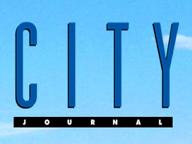Faculty News
—
Professor Brad Hintz identifies challenges ahead for global banks in the face of new regulations
—

Excerpt from Bloomberg -- "When you did the survey, not only were the results that the ROEs weren't going to meet their cost of capital. But what was surprising was the analysts and the institutional investors believe that the Street has done a very adequate job cutting compensation. So those two don't really tie together, do they? So... you saw a demand among institutional investors for more strategic change."
Faculty News
—

Excerpt from Bloomberg -- "When you did the survey, not only were the results that the ROEs weren't going to meet their cost of capital. But what was surprising was the analysts and the institutional investors believe that the Street has done a very adequate job cutting compensation. So those two don't really tie together, do they? So... you saw a demand among institutional investors for more strategic change."



















